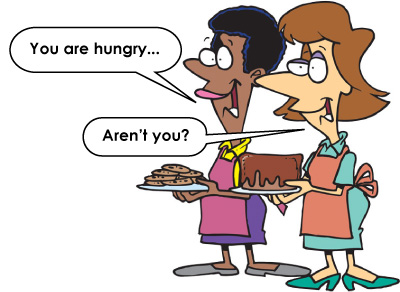MODALS OF DEDUCTIONS: MUST, CAN´T, MIGHT/MAY/COULD
Los verbos modales son verbos auxiliares que no pueden funcionar como un verbo principal, a diferencia de los verbos auxiliares “be”, “do” y “have” que sí pueden funcionar como un verbo principal.
Los verbos modales expresan modalidad, habilidad, posibilidad, necesidad u otra condición. Los utilizamos para el futuro y el condicional.
Como verbos complementarios que son, los verbos modales no funcionan sin otro verbo. Este otro verbo siempre va después del verbo modal y está en la forma base (el infinitivo sin “to”). No se conjugan los verbos modales y no tienen tiempo
Los verbos modales son: MUST, CAN´T, MIGHT/MAY/COULD
U S O S
CAN
Indica habilidad o posibilidad. En estos casos puede ser traducido como “poder” en español.
Ejemplos:
| I can speak five languages.(Puedo hablar cinco idiomas.) |
| We can work late tonight if you need us.(Podemos trabajar hasta tarde esta noche si nos necesitas.) |
| Bill and Tom can’t help you.(Bill y Tom no pueden ayudarte.) |
| The restaurant can be expensive if you drink a lot of wine.(El restaurante puede ser caro si bebes mucho vino.) |
| It can be dangerous to drive if you are tired.(Conducir puede ser peligroso si estás cansado.) |
En frases interrogativas, el uso de “can” puede solicitar permiso o preguntar sobre posibilidades.
Ejemplos:
| Can I have a glass of water?(¿Puedo tomar un vaso de agua?) |
| Can you help me?(¿Puedes ayudarme?) |
| Can they work late tonight?(¿Pueden trabajar hasta tarde esta noche?) |
COULD
“Could” indica posibilidad o habilidad en el pasado.
“Could” indica posibilidad o habilidad en el pasado.
Ejemplos:
| Joe could speak Spanish when he was young.(Joe podía hablar español cuando era joven.) |
| I couldn’t sleep last night.(No pude dormir anoche.) |
| Could you play an instrument when you were a child?(¿Podías tocar un instrumento cuando eras un niño?) |
También se puede usar “could” para posibilidades en el futuro.
Ejemplos:
| You could pass the test if you studied.(Podrías pasar el examen si estudiaras.) |
| I think it could rain later.(Creo que podría llover más tarde.) |
Como “can”, en frases interrogativas “could” puede solicitar permiso o preguntar sobre las posibilidades, pero es más formal.
Ejemplos:
| Could you pass the salt please?(¿Podría pasarme la sal por favor?) |
| Could you help me?(¿Podrías ayudarme?) |
| Could I be wrong?(¿Podría estar equivocado?) |
MAY
Como “could”, se usa “may” para indicar posibilidades en el futuro.
Ejemplos:
| I would bring an umbrella, it may rain later.(Llevaría un paraguas, puede llover más tarde.) |
| It may be better to finish this now, rather than wait until tomorrow.(Tal vez sea mejor terminar esto ahora, en lugar de esperar hasta mañana.) |
También se puede utilizar para dar permisos o instrucciones.
Ejemplos:
| You may leave if you like.(Puede salir si quiere.) |
| You may use your cell phones now.(Pueden usar sus teléfonos ahora.) |
En frases interrogativas, el uso de “may” es más educado que “can” o “could”.
Ejemplos:
| May I have a glass of water?(¿Podría tomar un vaso de agua?) |
| May I leave now?(¿Podría salir ahora?) |
MIGHT
Se usa “might” para indicar posibilidades en el presente o el futuro. En estos casos, es un sinónimo de “may”.
Se usa “might” para indicar posibilidades en el presente o el futuro. En estos casos, es un sinónimo de “may”.
Ejemplos:
| I would bring an umbrella, it might rain later.(Yo llevaría un paraguas, puede llover más tarde.) |
| It might be better to finish this now, rather than wait until tomorrow.(Tal vez sea mejor terminar esto ahora, en lugar de esperar hasta mañana.) |
También se puede usar al igual que “may”, para pedir permisos o hacer peticiones corteses, aunque este uso es mucho más común en el Reino Unido que en los Estados Unidos.
SHOULD
“Should” indica una obligación o recomendación. Refleja una opinión sobre lo que es correcto. Se traduce como el condicional de “deber” en español.
Ejemplos:
| I should call my parents more often.(Debería llamar a mis padres más a menudo.) |
| You shouldn’t work so hard.(No debería trabajar tan duro.) |
| They should practice more if they want to win the championship.(Deberían practicar más si quieren ganar el campeonato.) |
Se utiliza “should” en frases interrogativas para preguntar si existe una obligación o para pedir una recomendación.
Ejemplos:
| Should we leave a tip?(¿Deberíamos dejar una propina?) |
| Should I have the steak or the chicken?(¿Debería comer el bistec o el pollo?) |


